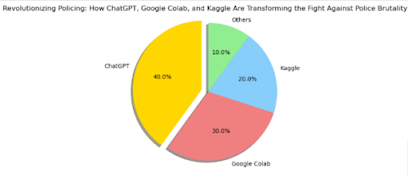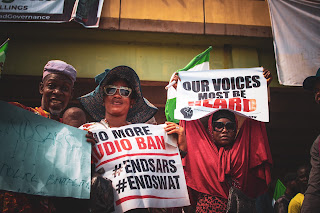Abuse of power by the police in Nigeria
In recent years, Nigeria has seen a growing concern about police brutality. Reports of excessive force, torture, and extrajudicial killings by police officers have become increasingly common, leading to widespread public outrage and calls for reform. The problem of police brutality in Nigeria is not new, but it has become more prevalent in recent times, and this is a cause for great concern.
One of the most high-profile cases of police brutality in Nigeria occurred in October 2020, when a video surfaced on social media showing officers of the now-disbanded Special Anti-Robbery Squad (SARS) shooting a young man in the presence of other police officers. The video sparked widespread protests and demands for accountability, leading the government to disband SARS and replace it with a new unit. However, despite the government's efforts to address the problem, reports of police brutality continue to surface. In January 2021, Amnesty International reported that Nigerian police officers killed at least 12 people during the EndSARS protests, which were calling for an end to police brutality.
The Nigerian government has also been criticized for its lack of accountability for police officers who engage in brutality. In many cases, officers involved in human rights abuses are not held accountable and continue to serve in the police force. This lack of accountability has led to a culture of impunity among some police officers, who feel that they can act with impunity without fear of punishment.
The problem of police brutality in Nigeria is a complex one, and it requires a multi-faceted solution. The government must take steps to address the root causes of the problem, including poverty, corruption, and a lack of accountability. Additionally, the government must ensure that police officers receive proper training and are held accountable for their actions.
One of the ways to address the problem of police brutality is by providing proper training and education to police officers. This will help officers understand their roles and responsibilities and how to interact with the public in a professional and respectful manner. Additionally, officers must be held accountable for their actions. This can be achieved by implementing an effective system of oversight and transparency to ensure that officers are held accountable for their actions.
Another way to address the problem of police brutality is by addressing the underlying social and economic issues that contribute to the problem. For example, poverty and unemployment can lead to a sense of hopelessness and frustration among the population, which can lead to crime and violence. By addressing these underlying issues, the government can help create a safer and more stable society in which police officers can better serve and protect the public.
In conclusion, police brutality is a serious issue in Nigeria that has led to widespread public outrage and calls for reform. The government must take steps to address the root causes of the problem and hold police officers accountable for their actions. The Nigerian people deserve a police force that serves and protects them, not one that terrorizes and harms them. It is the duty of the government to ensure that it is so. This can be achieved through proper training, education, and oversight of the police force, as well as addressing the underlying social and economic issues that contribute to the problem. Only with a concerted effort from all stakeholders can we hope to put an end to police brutality in Nigeria and build a safer and more just society for all.




Comments
Post a Comment